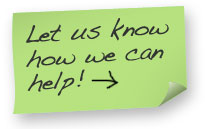When Google Wave came out, I was one of the many who saw category after category of software being replaced.  It was—and still is—the most interesting software demo I’ve seen in a couple of years. Now it’s dead. We’re not a news blog. But we have to ask, what are we to make of the quick life and death of Google Wave?
It was—and still is—the most interesting software demo I’ve seen in a couple of years. Now it’s dead. We’re not a news blog. But we have to ask, what are we to make of the quick life and death of Google Wave?
First, some obvious stuff:
- What’s it for? To call Wave a solution looking for a problem is too glib. The problem is real—people need to work together without tools, media, location, or time zone getting in the way. But exactly what role did Wave play? Unclear. Users could replace at least some of their email, wikis, shared documents, IM’ing and more. But all of it? And what about working with non-users? It was not, as marketers like to say, a “whole product.”
- How does it work? Wave ambitions far outreached its interface. It was complicated in goal and design. Few knew what they would do with it and fewer knew how to do what they wanted. The excited (e.g. me!) wrote this off as a mere 1.0 problem. But products need users. And users need at least SOME instant value. Many years ago, I met with the Newton team at Apple before the widely mocked device shipped. One conversation is burned in my memory. I asked, “Is there ANY paper process for which Newton 1.0 is unambiguously better?” A team member told me, “Yes, absolutely.” The real answer was, “No, absolutely.”
[As an aside, I used and loved my Newton…long after Steve Jobs killed it. I finally got embarrassed when a group at Comdex stared at me (how old does that THAT make me feel—remembering being mocked at a dead conference for using a dead device!). Yet I still wish my iPad, iPhone, and Windows Mobile device did everything my Newton did!]
But back to the point: a new product has to do something in a clearly better way.
But as important as these points are, this is not what interests me about the Google Wave story. The interesting question is: What does this say about Google? My sense is their business model foundation is profound and glorious: Get the incremental cost to serve customers to a rounding error from zero. Charge zero. Throw any app at the wall to dominate eyeshare. An app doesn’t have to be successful, it just has to suck up significant eyeshare. When appropriate, advertise. When inappropriate, just keep people’s eyeshare so they don’t see anyone else’s ads. Repeat.
Energy costs could kill this. So when energy costs (egad…air conditioning alone!) kept rising to the point that the cost of an incremental customer interaction wasn’t going to be zero, Google suddenly becomes a green company, investing lavishly in potentially lower-cost energy sources. Brilliant. So my default orientation has been: Don’t bet against Google.
But here’s Wave, technically fascinating, wildly ambitious, consuming lots of development time by some of Google’s superstars…and dead 15 months after intro and 3 months after public release. Sure, many features will be repurposed (Remember real-time translation? Ooooh). Lack of traction was more about customers not understanding value and application than about technical issues…and that is a terrible Product Marketing stumble. (Hey, I had that job in the 80s for Apple’s HyperCard, so I know those stumbles when I see them! No one else even remembers the product, yet I still kick myself for some of them.) Could it be that Google’s skills, culture, preference, priorities…won’t let it succeed in a big way in a product that needs Product Marketing scaffolding? Products for which you need to know…Who are the users? What do they use now? What is our value prop? Do we have a “whole product” or just some cool features? Is there an ecosystem? Etc. Etc.? This begs the question: what will be the future for other ambitious Google initiatives, like Buzz, in categories inherently requiring this scaffolding?
Takeaways:
- Design and market for a specific market. It can be big and broad (or small and rich), but you have to understand what matters to them.
- Don’t assume a company (or your company) is good at everything just because they are extremely good at some things.
- When something fails, make sure you take the time to really know whether it was concept or execution (Click here for an earlier comment on this).




